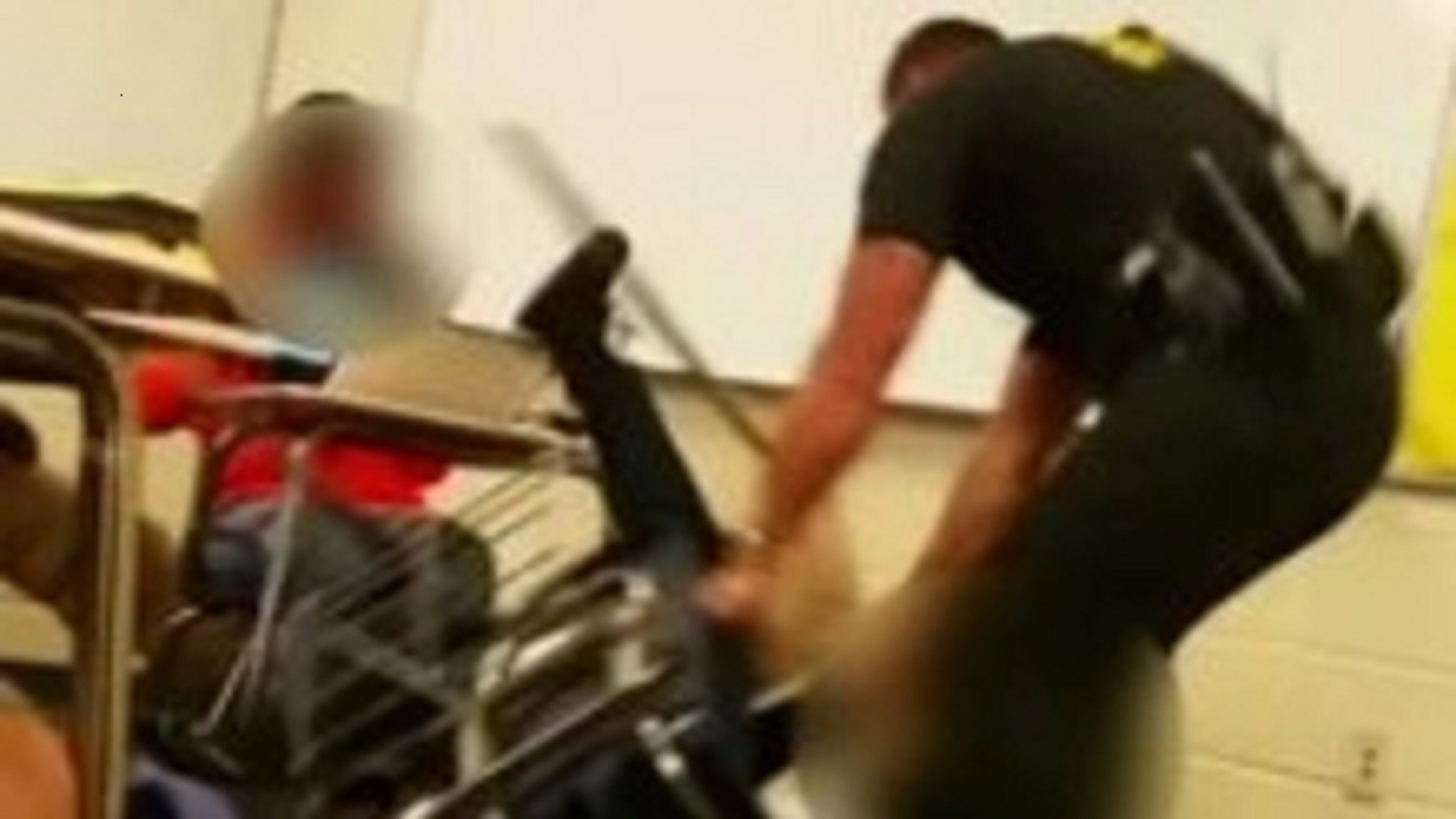Should schools provide second chances to cops with checkered pasts?

An Atlanta Journal-Constitution and Channel 2 Actions News investigation of officers hired by school police departments revealed a troubling practice: School police forces employ officers who have been terminated or resigned under the cloud of an investigation at twice the rate of local police departments.
The story explained:
The officers were terminated or investigated for a wide range of reasons, including chronically poor performance, lying to superiors, sexual misconduct and inappropriate use of force, according to POST documents. Disparity in the disciplinary history of officers at school departments in metro Atlanta varies widely across the region and comes as school police agencies are expanding across the state.
The AJC/Channel 2 report found Clayton Schools has one of the highest rates of officers with checkered pasts, about 18 percent of officers have previously been forced out of a police job. The rate was 14 percent in Atlanta Public Schools; 12. 2 percent in DeKalb; 6 percent in Fulton; and 3.1 in Cobb.
Gwinnett operates the state’s largest police school force but has no officers fired by another Georgia law enforcement agency, according to the AJC report. "We just don't want to take the chance of putting an officer in an environment like a school where there are going to be all kinds of problems if you put a bad officer in there," said Gwinnett Schools police chief Wayne Rikard.
School police officers must win the trust of not only employees and parents but students. And they must be able maintain their cool surrounded by smirking adolescents, not always an easy task. They can’t be hotheads or easily goaded.
The AJC/WSB investigation recounts a Dougherty County School System Police officer who tackled a 15-year-old student from behind and punched him several times after the student called him "play-play cop" and threatened him. The school system fired him after the incident, which left the student with two bone fractures.
J. Tom Morgan, a former DeKalb County district attorney, is the author of "Ignorance Is No Defense: A Teenager's Guide to Georgia Law.” He and I talked about school resource officers a few years ago after two local high school seniors were arrested and taken to jail in handcuffs on the last day of school for throwing water balloons.
One of the reasons for police overreactions to teenagers, suggested Morgan, is that younger officers, in particular, can fall into escalating power plays with teens. Older officers with teens of their own may be better able to recognize when a situation calls for a sit-down rather than a throw-down.
School police force chiefs who have hired applicants with disconcerting backgrounds defended their decisions, telling the AJC and WSB that the officers deserve a second chance and that mistakes should not haunt them forever.
I agree in theory, but we are talking about hallways full of kids, some of them flippant and disrespectful. When past transgressions by an officer reflect a lack of self-control and unwarranted use of force, parents should rightfully question whether schools are the place to provide those second chances.
Anyone disagree?


